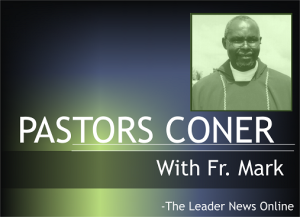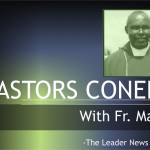THE REVOLUTION IN THE HEART OF MAN
 The first reading describes the love of God for His creatures. “But you have mercy upon all because you can do all things and you overlook the sins of men for the sake of repentance. For you love all things and does not hate anything which you created”.
The first reading describes the love of God for His creatures. “But you have mercy upon all because you can do all things and you overlook the sins of men for the sake of repentance. For you love all things and does not hate anything which you created”.
In the Gospel, Jesus puts into effect the prophetic words of Wisdom. He communicates the gratuitous love of God to Zaccheus the sinner, who converts and opens his heart and hands.
THE ENCOUNTER WITH CHRIST OPENS THE HEART AND HANDS
The exterior gesture of giving, like every human gesture, is in itself ambiguous. The gift of a man closed in himself, all stretched to the affirmation of self, is disguised egoism. The beneficence often can be the mashing of exploitation, indeed the means of continuing it. The gesture of Zaccheus, on the other hand, who returns four-fold of what he defrauded and gives half of his wealth “to the poor” is born from an interior conversion, from a change of course brought about by the encounter with Jesus.
Meeting Love, discovering being loved, one becomes capable of encountering others. He sees them differently, no longer as objects to be used but as persons to be loved. And this is because finally he can see himself and his life with the eyes of those to whom he did injustice. Therefore, even money changes direction: the gesture of grasping and snatching is replaced by the gesture of freely and gratuitously giving. And this way money from object of prey becomes sign of communion.
CHRIST EVANGELIZES ALL
Christ, having become a guest of Zaccheus, illuminates this change and interprets it in the sense of grace and liberation: “Today salvation has come to this house”.
Christ is truly the Evangelizer of all: poor and rich. His preference is for the poor: “He sent me to proclaim the Good News to the poor” (Lk 4:18).
The evangelization of the rich exploiters demands courageous denunciation of their situation and an appeal for a conversion that is effective. Also the rich can become citizens of the Kingdom on the condition that they follow the example of Zaccheus.
A NON-VIOLENT REVOLUTION
Today, however, there is a grave problem particularly acute in some area: What to do when the rich does not do like Zaccheus, when he does not convert, when the lack of love of some people descends on many like hunger, oppression, lack of development etc?
Is it possible to love the victim as well as the executioner? Does love for the poor not impose the violent elimination of the exploiters? But are those who violently eliminate for love of the poor sure of not acting because of destructive aggressivity? Will the violent elimination of sinners “automatically” create that generation of saints who know how to love?
Historical experience and reason say no. The new man, the man capable of loving will still be the result of an “interior conversion”.
This process will be all the more true and radical to the extent that disgust for the evil done rises in the sinner together with the vision of the grave consequences of his evil act.
The Gospel does not give us norms of “how to do justice”. This does not mean that the Christian should be comfortable with accepting the situation and society as it is. Pope Paul VI admonishes: “The present situation should be tackled courageously; the injustices which it brings should be fought and defeated. Development demands courageous transformations that are deeply innovatory. Urgent reforms should be undertaken without any delay. Each person should generously do his own part”.
After all, it is the commandment of love that demands an active and radical transformation of the world. But it is one thing to affirm a revolutionary necessity and another thing to set out on the street which is expressed in the recourse to violence.
God bless you!
Read also Related Posts
Comments
comments

 PASTOR’S CONER – COME, LORD JESUS!
PASTOR’S CONER – COME, LORD JESUS!
